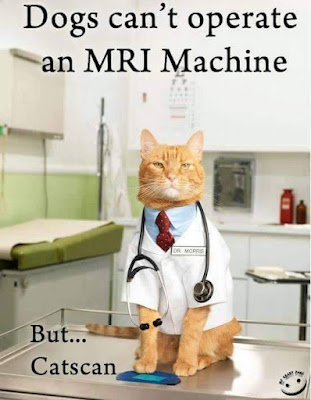 |
Friday, 16 September 2022
Thursday, 15 September 2022
The definite article with public buildings
Unfortunately, there are numerous wrong explanations of English grammar rules on Internet. I'd advice you to double- check when you are uncertain or your resorce is not an official one like BBC Learning English, CAMBRIDGE English Learnig Assessment or OXFORD English Grammar Course etc.
This is what I found yesterday on Instagram:
I've been teaching for years how we use the definite article "the" with public buildings and I can say that it is absolutely incorrect. Let's see with Phil, why:
So at school or at the school?
Without 'the'
We often use a prepositions of place with public buidlings when talking about the main reason that people go there. We normally don't use the in this case.
- I'm at school. (I'm studying)
- I'm in hospital. (I'm ill)
With 'the'
We often use 'the' in front of a public buidling when talking about an alternative activity to the normal reason that people go there.
- I'm at the school. I'm here to pick up our son.
- I'm in the hospital to visit Mable.
meet his teacher.
)
Yet at school or in school?
- "In school" is perhaps more common American English while "at school" is more British, but both are equally correct. Similarly, an American would probably say "in college", while a Brit would say "at university". "In" tends to be used for institutions, so you are "in hospital" rather than "at hospital", but "at home" not "in home" - although you might be put "in a home". There is perhaps a slight subtle difference that "in school" means they attend school - as opposed to having finished school, while "at school" means they are there now:
"Are your children in school" = Are they under 16 or 18? But "Are your children at school" = Are they at school today or are they at home? English Stack Exchange
- We use both "in school" and "at school", for slightly different situations. "At school means" the person is literally, physically, inside the school: (conversation at 2:00 PM) “Where’s John?” “He’s at school. His classes finish at 3:30.” "In school" means the person is studying in general (usually at college or university) but not necessarily inside the school building at that moment: “My husband doesn’t have a job, because he’s in school. He’s studying law.” Espresso English
- We use the phrase “at school” to indicate that a person is currently anywhere within the designated “grounds” of the school or in a general sense are attending (or have attended) the educational institution to which you are referring:
We are at school today because it is not a nationally recognized holiday.
The children are at school from 7:00 AM until 3:00 PM every weekday.
The dance this weekend is at school, but I’m not sure where in the building they are holding it.
We use the phrase “in school” to imply that the person is within the actual school building (as opposed to just being somewhere on the school grounds) or in a general sense are attending (or have attended) the educational institution to which you are referring:
Jeremy is in school right now so he can’t come with me to the store to pick out new shoes.
Are your children at the ages now where they are in school?
The children are in school every Monday, Wednesday, and Friday, but we homeschool them on Tuesdays and Thursdays.
Wednesday, 14 September 2022
What does -holic mean?
The combining form –holic is used like a suffix meaning “a person who has an addiction to or obsession with some object or activity.” It is occasionally used in slang and “nonce words,” that is, words coined and used only for a particular occasion.
𝗺𝗲𝗺𝗲 /miːm/noun
1.an element of a culture or system of behaviour passed from one individual to another by imitation or other non-genetic means.
Origin: from Greek mimēma ‘that which is imitated’, on the pattern of gene
The word was coined by British evolutionary biologist Richard Dawkins in The Selfish Gene (1976) as a concept for discussion of evolutionary principles in explaining the spread of ideas and cultural phenomena.
Paddington Bear joins Queen Elizabeth II for tea at Buckingham Palace on 5th June 2022
"I always keep one for emergencies," he tells her.
Unlatching a black handbag, she pulls out a sandwich, too.
"So do I," she says. "I keep mine in here."
Saturday, 10 September 2022
There, Their, or They're? (Homophones)
There
"There" is like "here" because it represents a place. ("There" and "here" are adverbs of place.)
"There" has two uses:
(1) It means a specific place: She is there.
(2) It means that something exists: There are two apples.
Their
"Their" is for possession. It is like "my," "your," "his," "her," "its," and "our." These are called possessive determiners ("possessive adjectives" in traditional grammar).
Top Tip
Use the word "our" instead of "their." If the sentence still makes sense, then "their" is correct. This trick works because "our" and "their" are both possessive determiners used for plurals.They're
"They're" is a contraction of "they are."
Example sentences with "they're": They're not leaving on Saturday now.
(Do the expansion test: "They are not leaving on Saturday now.")
Top Tip
-
Sporting his iconic blue duffle coat, Paddington Bear sat down with Queen Elizabeth II for tea at Buckingham Palace as part of the Platinum ...
-
from Dead Poets Society OR use another amplifier instead of 'very': Do you know what amplifiers are? Amplifiers are adverbs ...
-
Unfortunately, there are numerous wrong explanations of English grammar rules on Internet. I'd advice you to double- check when you are ...






